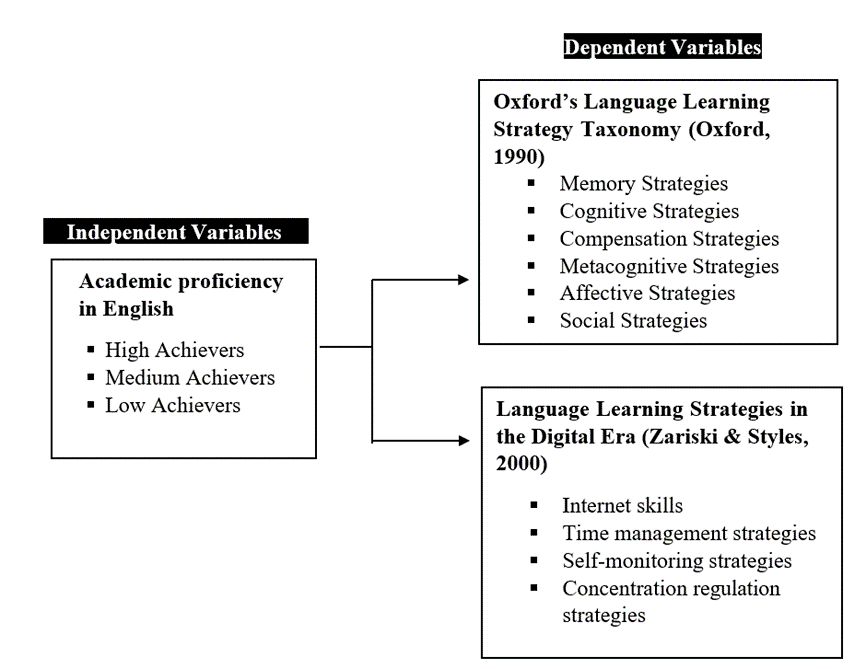Language Learning Strategies used by Chinese Students Studying in Online English Language Courses
Keywords:
Language learning strategies, English academic achievement, Online learningAbstract
students in online English language courses and investigated their relationship with academic achievement. The participants in this study consisted of 118 Chinese students who enrolled in the Fundamental English courses of the international program at the Faculty of Humanities, Chiang Rai Rajabhat University, Thailand. The research involved a mixed-methods approach, using both qualitative and quantitative data collection methods. The data was collected through online surveys and interviews with Chinese students studying in online English language courses. The results indicate that Chinese learners use a variety of language learning strategies (LLS), with Internet strategies being the most frequently used by high, medium, and low achievers, but not correlating with academic achievement. Time management strategies are the second most used, particularly among high achievers, while social strategies are used by all students. High achievers tend to use cognitive strategies more than medium and low achievers. The study found a significant correlation between LLS use and English academic achievement, with Memory, Cognitive, Metacognitive, and Self-Monitoring Strategies being strongly correlated, and Compensation, Social, Time Management, and Concentration Regulation Strategies correlated at a strong level. However, no significant relationship was found between Internet Strategies and academic achievement. These findings emphasize the importance of developing effective language learning strategies (LLS) training to support Chinese learners in online English language courses to improve their academic performance.
References
Chen, W. Y., & Liang, Y. H. (2020). Factors affecting student satisfaction in online learning: A systematic review. Computers & Education, 145, 103568.
Chen, W., Liang, Y., Liang, Y., & Li, Y. (2021). Investigating the effects of internet-based learning on college students' communication and collaboration. International Journal of Emerging Technologies in Learning (iJET), 16(1), 27-34.
Choi, Y. & Hannafin, M.J. (2005). Design and use of multimedia in online learning. Educational Technology Research and Development, 53(1), 5-23.
Dörnyei, Z., & Ushioda, E. (2022). Teaching and researching motivation (3rd ed.). Routledge.
Gao, X., & Zhang, L. J. (2020). The relationship between Chinese EFL learners' use of language learning strategies and motivation: A structural equation modeling approach. System, 91, 102257.
Gu, P. Y. (2019). Approaches to learning strategy instruction. In A. U. Chamot, & V. Harris (Eds.), Learning strategy instruction in the language classroom. Multilingual Matters, 22-37. From http://dx.doi.org/10.21832/9781788923415-008.
Hu, H., & Gramling, J. (2009). Learning strategies for success in a web-based course:
A descriptive exploration. Quarterly Review of Distance Education, 10(2), 123-134.
Kim, M. J., & Kim, Y. K. (2021). The effectiveness of online learning: A meta-analytic review. Journal of Educational Technology Development and Exchange, 4(1), 1-19.
Kim, Y. & Lee, Y. (2021). The effects of online learning on students' learning achievement: A systematic review. Journal of Education and Practice, 12(1), 1-10.
Lee, C. (2020). A study of adolescent English learners’ cognitive engagement in writing while using an automated content feedback system. Computer Assisted Language Learning, 33(1-2), 26-57. From https://doi.org/10.1080/09588221.2018.1544152.
Lee, Y., & Kim, J. (2021). Conceptualizing online education for student-centered learning. Journal of Educational Technology Development and Exchange,
(2), 45-57.
Lin, Y. C., Lu, W., & Lai, Y. J. (2019). English Language Learning Strategies Used by Generation Z: A Study of Taiwanese EFL Students. Journal of Educational Technology Development and Exchange, 12(1), 1-18.
Liu, Y., Li, X., & Chen, W. (2021). The impact of learning strategies on language learning in online environments. Education and Information Technologies, 26(1), 1-19.
Lu, J., & Anderson, T. (2021). The role of cognitive strategies in online language learning: A systematic review. Educational Technology Development and Exchange (JETDE), 14(1), 1-16.
Nagy, W., William, J., Anderson, R. C., & Herman, P. A. (2019). Learning words from context. Journal of Literacy Research, 51(2), 139-156.
Oxford, R. L. (1990). Research on second language learning strategies. Annual Review of Applied Linguistics, 13, 175-187.
Selwyn, N. (2009). The digital native - myth and reality. Aslib Proceedings, 61(4), 364-379.
Wei-Lin, T., & Chen, W. (2020). The Use of Cognitive and Metacognitive Strategies in Online Language Learning. Journal of Educational Technology Development and Exchange, 13(1), 1-16.
Yang, Y. R., & Brown, C. (2017). The effects of explicit teaching of learning strategies on English listening comprehension and strategy use. System, 65, 116-128.
Zariski, A., & Styles, M. (2000). Language learning strategies: An overview for L2 teachers. The Internet TESL Journal, 6(11).
Zhang, J. (2021). The effects of online language learning on motivation and engagement among Chinese EFL learners. Language Learning & Technology, 25(2), 1-15.
Zhang, L. J. (2010). Exploring strategies used by Chinese EFL learners in a computer-mediated communication (CMC) environment. ReCALL, 22(2), 215-233.
Zhang, J. & Chen, X. (2022). The impact of social interaction on student satisfaction and learning outcomes in online learning. Journal of Educational Technology Development and Exchange, 5(2), 56-65.

Downloads
Published
How to Cite
Issue
Section
License
Copyright (c) 2023 Phayao University

This work is licensed under a Creative Commons Attribution-NonCommercial-NoDerivatives 4.0 International License.
ผู้นิพนธ์ต้องรับผิดชอบข้อความในบทนิพนธ์ของตน มหาวิทยาลัยพะเยาไม่จำเป็นต้องเห็นด้วยกับบทความที่ตีพิมพ์เสมอไป ผู้สนใจสามารถคัดลอก และนำไปใช้ได้ แต่จะต้องขออนุมัติเจ้าของ และได้รับการอนุมัติเป็นลายลักษณ์อักษรก่อน พร้อมกับมีการอ้างอิงและกล่าวคำขอบคุณให้ถูกต้องด้วย
The authors are themselves responsible for their contents. Signed articles may not always reflect the opinion of University of Phayao. The articles can be reproduced and reprinted, provided that permission is given by the authors and acknowledgement must be given.







